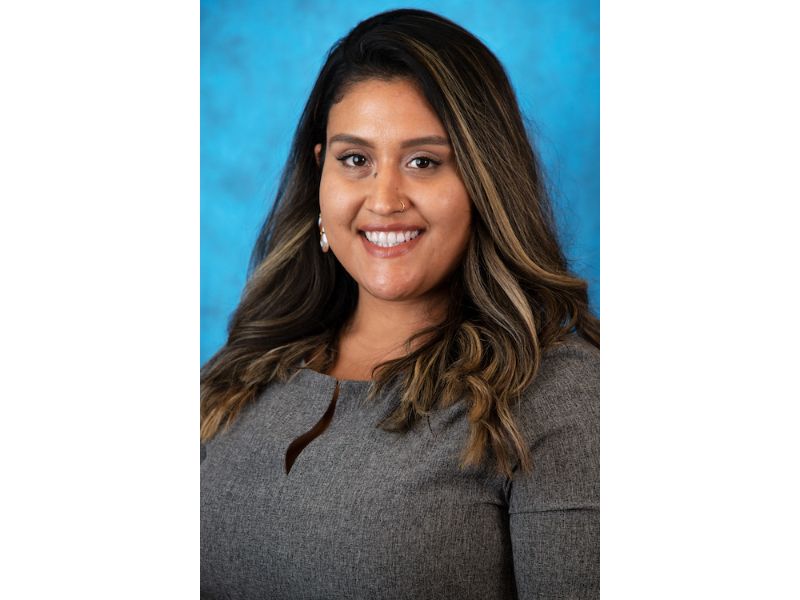Posted on October 16, 2022 by Amanda Cerreto
This article was originally written for UTSA by Chloe Johnson.
 We may not be aware of it while going through our day-to-day lives, but the neighborhoods we live in and the environments in which we grew up can have tangible effects on our physical well-being. The characteristics of our immediate surroundings—such as neighborhood cleanliness, safety, and social cohesion—can have unseen impacts on our health that accumulate over time. Marina Armendariz studies these neighborhood factors in her research, using a place-based perspective when examining health disparities that disproportionately impact racial and ethnic minoritized groups, particularly Latinos.
We may not be aware of it while going through our day-to-day lives, but the neighborhoods we live in and the environments in which we grew up can have tangible effects on our physical well-being. The characteristics of our immediate surroundings—such as neighborhood cleanliness, safety, and social cohesion—can have unseen impacts on our health that accumulate over time. Marina Armendariz studies these neighborhood factors in her research, using a place-based perspective when examining health disparities that disproportionately impact racial and ethnic minoritized groups, particularly Latinos.
”Stress affects our lives so much, and I'm interested in how the neighborhood context introduces certain stressors," Armendariz said. "There's a term called ‘get under the skin' which explains how external stressors can be internalized in our bodies and influence certain health outcomes. We see that especially among Latino populations, with links between place-based stress and diseases like diabetes, cardiometabolic conditions, and obesity."
Armendariz, a postdoctoral fellow in the College for Health, Community and Policy's Department of Public Health, says her own family experiences are what first sparked her interest in Latino health disparities.
"Being a Mexican American and seeing my own relatives experience health issues like diabetes, I was always interested in Latinos and health,” she said. “I got to really dive into these topics as an undergraduate researcher, and I became interested in how stress affects our health and our lives so much during my doctoral training.”
Armendariz's current research assesses the potential link between unfavorable neighborhood conditions and C-reactive protein, which is a biomarker of inflammation in the body, and explores the role of Latino ethnicity and nativity status. Part of her collaborative work also looks to examine the intersectionality of neighborhood conditions, race and ethnicity, stress, education, and gender, and how these factors affect cognitive function among diverse older adult populations.
In addition to uncovering the hidden health effects of place-based stress on Latino populations, Armendariz also hopes to further disaggregate Latinos' panethnicity in academic spaces as part of her research and contribute to conversations around the group's diversity.
“Latinos are very heterogeneous and settle from many different countries. Studying health disparities within this population is complex because there are huge cultural differences and geographic differences between groups,” she said. “Even though there is a shared language, Spanish can sound very different depending on what area you're in and the regional dialects. I want to continue to bring awareness to not just Latinos and health, but also to the uniqueness of Latino people.”
Armendariz joined UTSA in 2021 as the first fellow in the new Provost's Diversity Postdoctoral Fellows to Faculty Program (PDPFF). The fellowship was created to help identify and advance the work of exceptional, diverse early career post-doctoral scholars, with the goal of preparing them for faculty positions. The fellowship program is one of five programs in UTSA's Strategic Faculty Hiring Initiative , all designed to increase the number of outstanding UTSA faculty, and was developed as a part of the Equity Advocacy Initiative —a comprehensive university-wide effort to intentionally create inclusive learning environments.
The UTSA Honors College provides instructional support and mentoring to each PDPFF fellow in addition to the opportunities they receive from their academic college. Armendariz instructs an honors class each semester and receives mentorship from faculty and staff in the college to help further develop her teaching skills and learn strategies to best deliver courses to the high-achieving and diverse students that are enrolled in the Honors College.
“My experience collaborating with the Honors College has been one-of-a-kind. I have had the opportunity to connect with students beyond the level that I could have imagined in my short time here, and I attribute that to the small classroom setting where I was able to be intentional about getting to know my students,” Armendariz said. “Dr. Jill Fleuriet prioritizes students’ learning experiences by ensuring that we as Honors faculty deliver a rich, experiential learning environment. This is the type of pedagogy I came to learn about at UTSA, which I know will push me to improve my role as an educator.”
Before arriving at UTSA, Armendariz earned both a doctoral degree and a master's degree in biobehavioral health from Penn State University. She completed her bachelor's degree in psychology at California State University, Dominguez Hills, which is a fellow Hispanic Serving Institution (HSI). She says that UTSA's designation as an HSI, as well as the university's mission to become a Hispanic thriving institution, were part of what drew her to apply for the postdoctoral program and join the Roadrunner community.
“As someone who attended an HSI in undergrad, it was always my personal goal to come back and have an opportunity to teach at an HSI,” Armendariz said. “Being in a place like UTSA, I feel represented not just in the larger community, but also in front of my classroom because the student population is so diverse. That diversity also brings a richness to our discussions, and it has been great to have so many different voices involved in my class.”
Armendariz teaches the following course in the Honors College:
- HTH 2413: Introduction to Community and Public Health
Read more Faculty Features about other interesting and accomplished faculty at UTSA.


